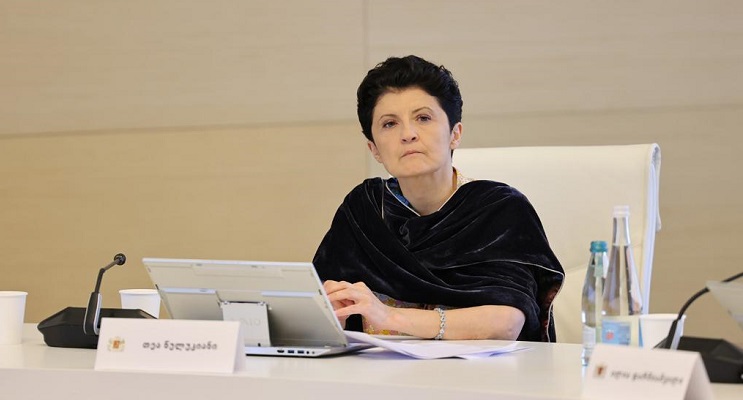Ex-Pres. Saakashvili “paid for” EP resolutions, sanctions against own country - Vice PM

Thea Tsuslukiani said Saakashvili had acted “against his own country and people” both in office and following his term as President. Photo: Government press office
Thea Tsulukiani, the Vice Prime Minister of Georgia, on Wednesday said the latest disclosure of the United States-based law firm Akerman with the country’s Department of Justice had “proved” the imprisoned former President Mikheil Saakashvili had “paid for” European Parliament resolutions calling for his release and for lobbying for sanctions to be placed on the Georgian Government for his alleged ill-treatment in detention.
Published on Tuesday, the new information revealed the firm had been involved in drawing up a draft resolution for the EP that was critical of the Georgian Government around Saakashvili’s imprisonment, preparation of articles about the health condition of the former President for international media, and persuasion of US senators and communicate with UK officials to pursue sanctions against Georgia over his treatment in detention.
In her press comments, Tsulukiani called the information “disturbing” and a “big scandal”, which she claimed Saakashvili’s entourage would “try to hide” and “portray as insignificant”.
She also alleged Saakashvili had acted “against his own country and people” both in office and following his term as President, adding the disclosures had “confirmed” he had “paid money to damage state interests by imposition of international sanctions”.
Thank God Saakashvili has failed to achieve this goal”, Tsulukiani said, adding the Government was expecting “explanations over this big scandal”, efforts of which she said had been directed “against the country, and not only the Government”.
Tsulukiani also said the information on the activities of the lobbyist firm had been made available thanks to the US’ Foreign Agents Registration Act, after a bill for a similar law was retracted by Georgia’s ruling party in May after mass protests against it.
She said the bill had been labelled a “Russian law” by domestic organisations and the international community before its withdrawal by the ruling party, which she called a “missed opportunity”.
 Tweet
Tweet  Share
Share